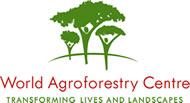Gender gaps in South and Southeast Sulawesi, Indonesia highlight important issues that need to be considered in designing and implementing equitable development programs.
In a study conducted by the World Agroforestry Centre, researchers found that to better support agroforestry production in Sulawesi, women would benefit from greater access to land rights and ownership and more involvement in land-use management and decision-making.
As part of an assessment on livelihood systems for an "Agroforestry and Forestry in Sulawesi" project, the World Agroforestry Centre (ICRAF) has published "Gender, livelihood and land in South and Southeast Sulawesi," which identifies key challenges to the effective participation of women in land-use management.
The study finds that, although female participation in decision making is low according to a variety of development indices, at the community level, women play important roles in decision making related to land valuation and markets for cacao, coffee and clove products.
Focusing on these areas, the paper calls for women to be more involved in land-use management to help maintain biodiversity, and suggests that development programs focus on livelihood sources that are preferred by both women and men. It also stresses the need for women to be more involved in public, extension services, technical assistance and programs to access credit. The study underscores the need to create an environment that helps women hold land certificates, in order to build a culture of greater participation.
ICRAF is a member of the Consultative Group on International Agricultural Research (CGIAR).

